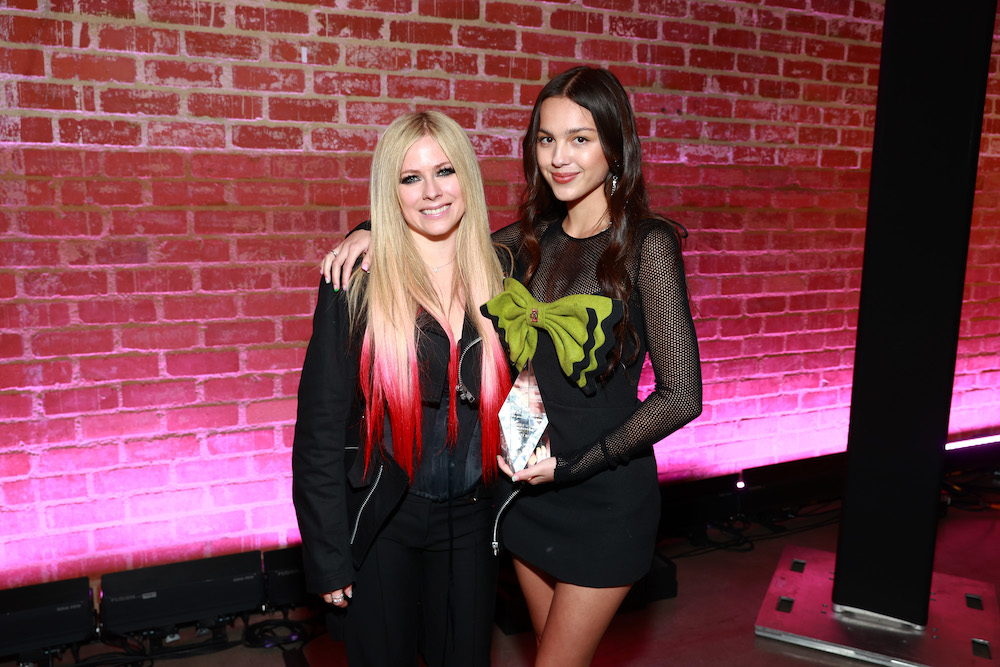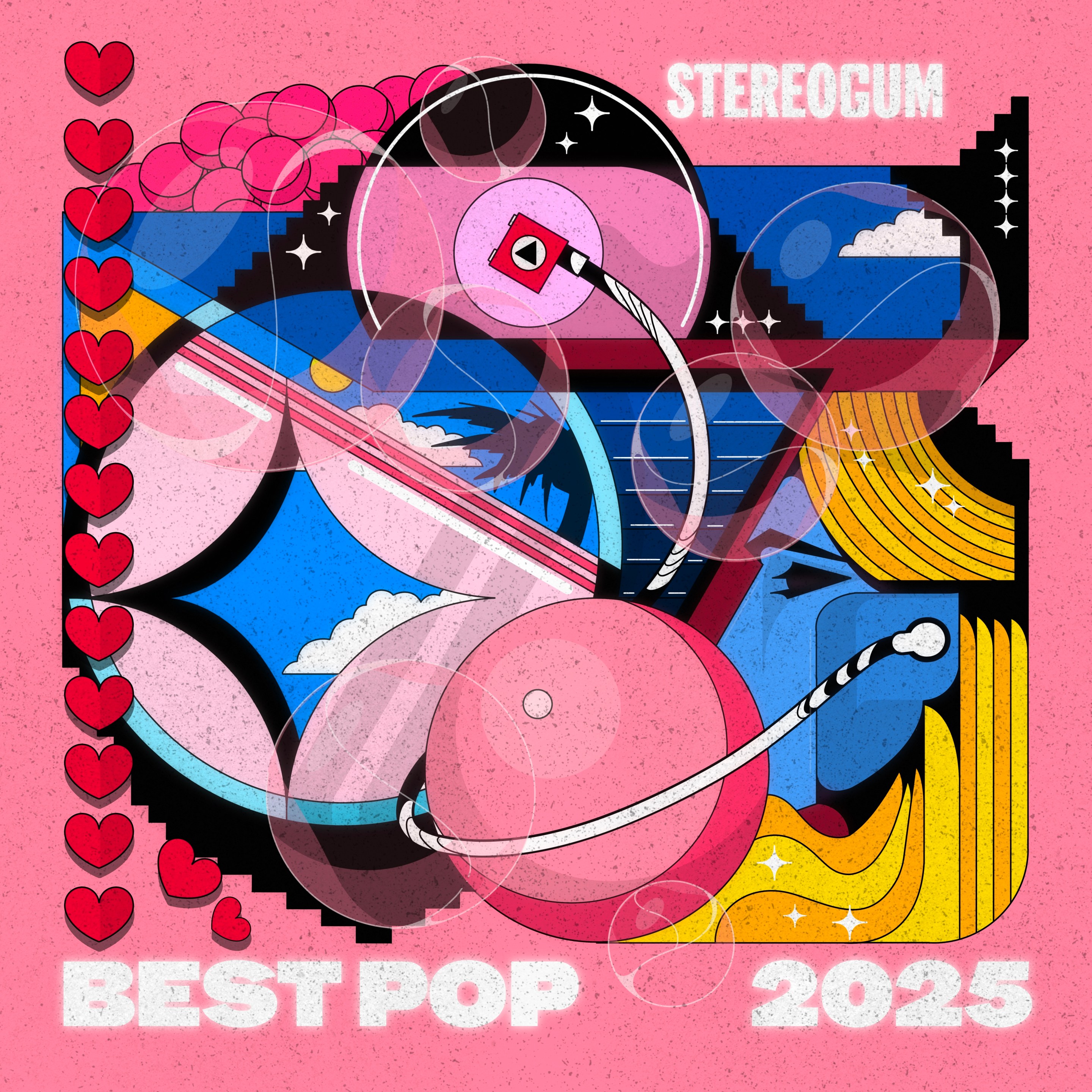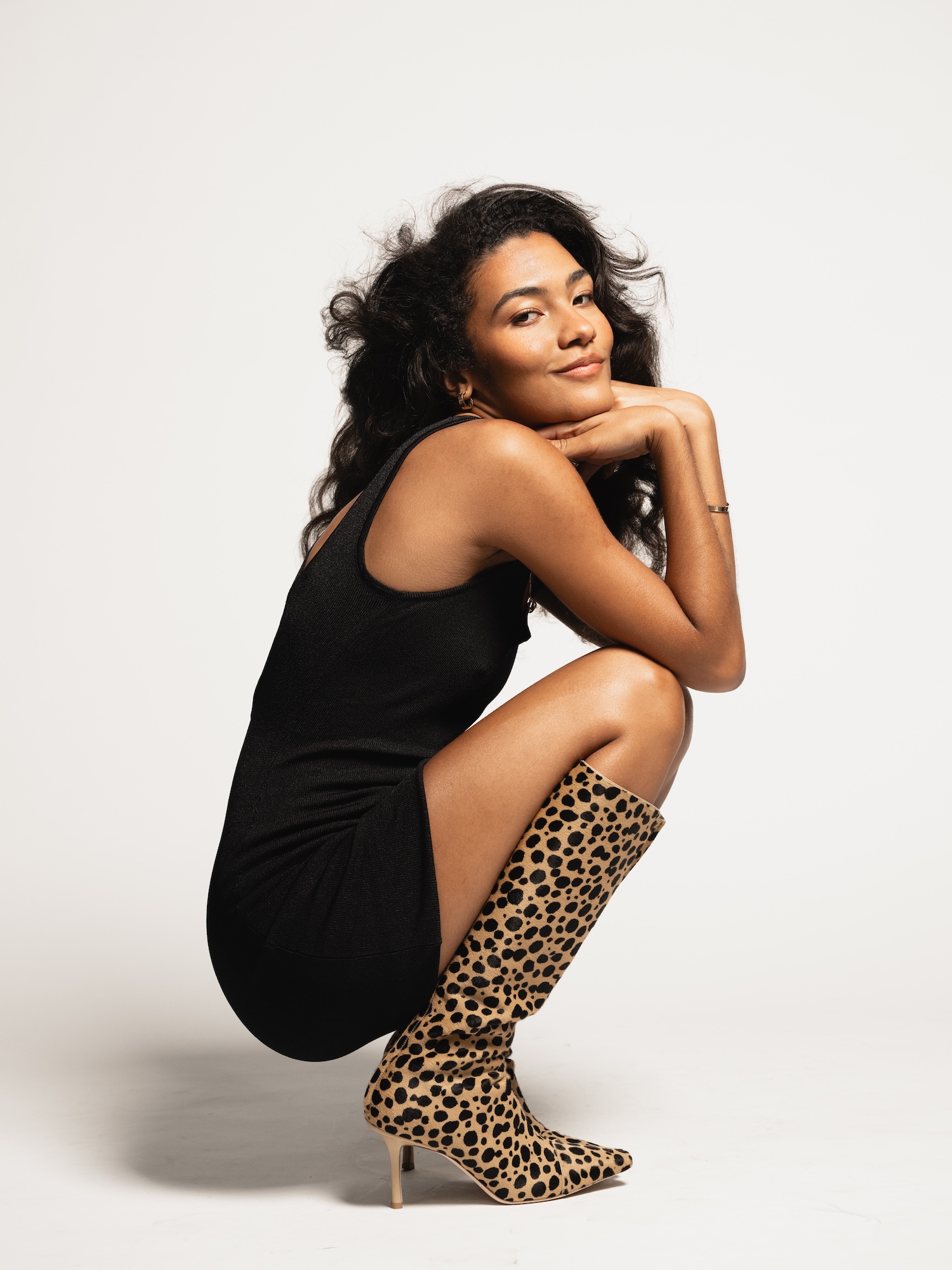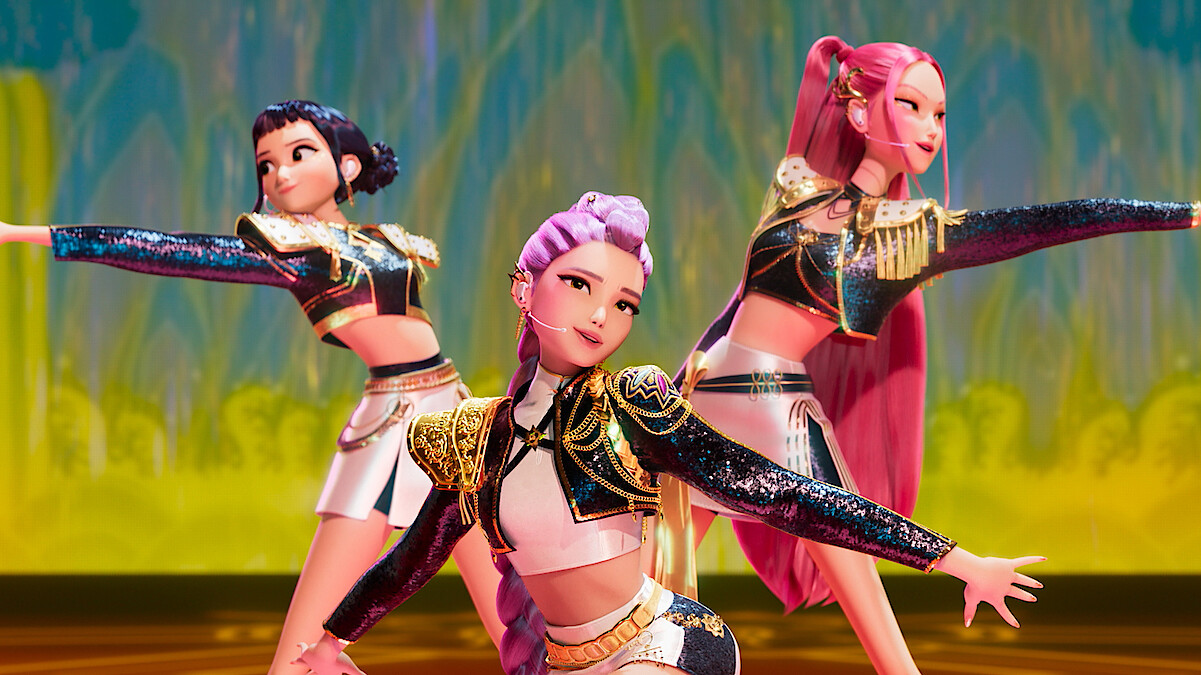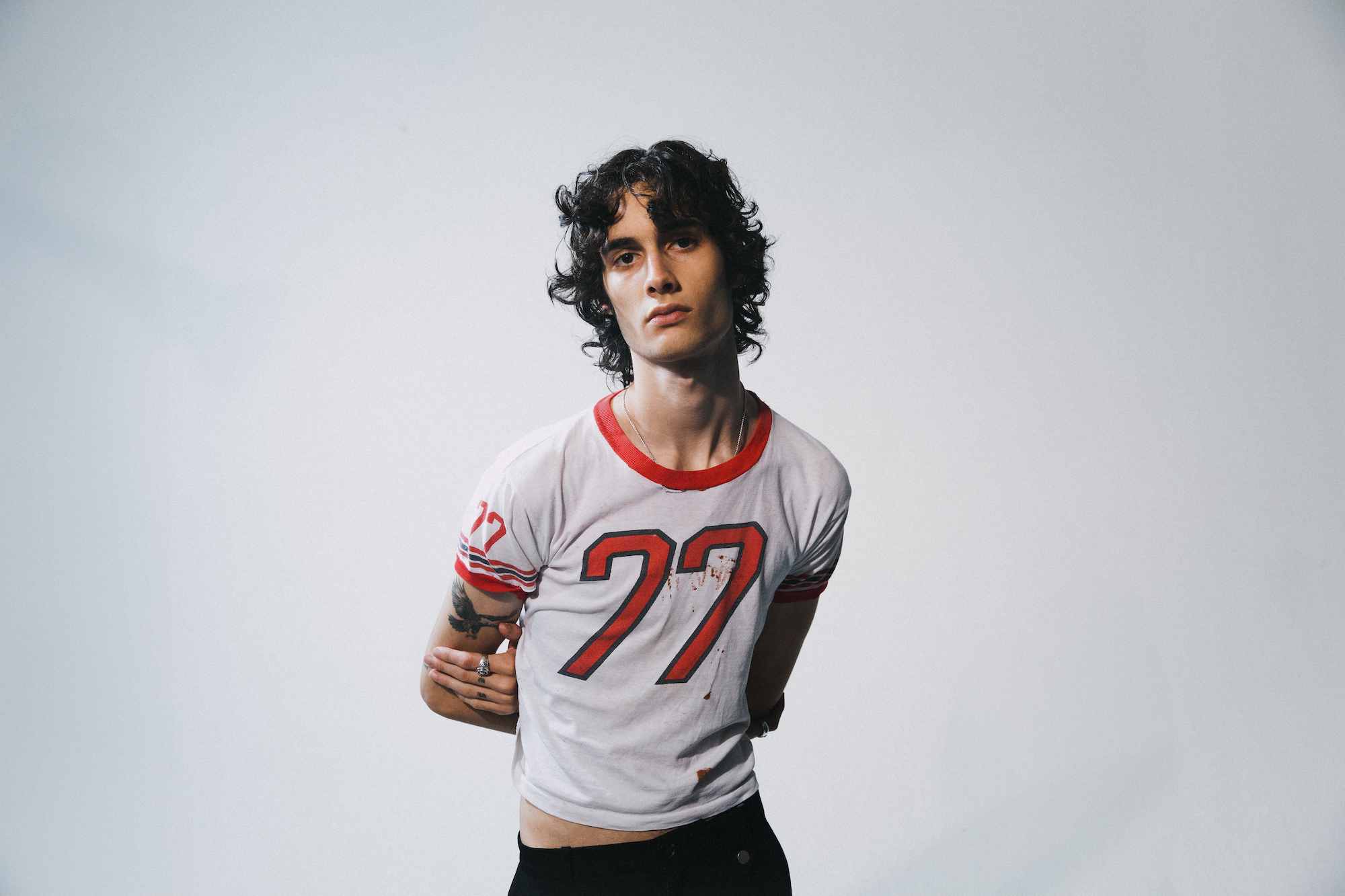The holiday season is over, but the holiday charts -- the Billboard Hot 100 top 10, in particular -- mirror a certain ongoing generational war. Gen X pop icon Mariah Carey and her unshakable "All I Want For Christmas Is You" hit #1 (for a third straight year), while millennial Adele's "Easy On Me" hovered at #3. At #2 was Brenda Lee's "Rockin' Around The Christmas Tree" -- a boomer classic. Kicked out of the top 5 was Gen Z jam "Stay" by the Kid LAROI & Justin Bieber, replaced by midcentury yuletide bedrocks "Jingle Bell Rock" and "Holly Jolly Christmas," which debuted in the '60s and '50s, respectively. So many decades, and they’re all knocking against each other in the top 10. It certainly makes you think about whether or not the generations can coexist peacefully in the pop music world when recent history (see: "OK Boomer," etc) has suggested otherwise.
Anyway, as you might have noticed, it's a new year, and you have a new pop columnist! After eight years of chronicling pop music for Stereogum, my colleague Chris DeVille has passed this column over to me (no pressure!!), and I do hope that I do both you -- and him -- proud. And as such, it’s time to carry on with the annual tradition of looking ahead to the next year in pop music, aka the 2022 State Of Pop Address.
First, I thought it would be a good idea to reiterate Chris' definition of pop, just for the record. (As a longtime reader of this column and a lifetime pop music obsessive, I see no reason to change the years-long interpretation of the genre.)
"Pop" means many different things to many different people, but as usual here I’m defining it as the music that becomes massively, statistically, unavoidably popular (particularly in the United States) and the artists that aim for that kind of ubiquity. Maybe they do so by appealing to certain ideas about what constitutes pop music -- gargantuan hooks, quotable lyrics, beats that inspire involuntary body motion, characteristics loosely understood to be accessible and attention-grabbing -- but for our purposes, pop is less a musical style than a container for understanding the dominant sounds of the moment. Really, it’s a series of containers, among them the Hot 100, the various factors that feed into it (streaming, radio, and track sales), and whatever other delivery systems have come to define people’s experience of widely beloved music.
And what does pop music mean to me, specifically? Well, in addition to the above, I see pop criticism as an opportunity to have larger conversations about everything: gender, race, politics, economics, internet culture. Take Lindsay Zoladz's recent essay in the New York Times about Gen Z's incoming pop music takeover. It's no secret, of course, that Gen Z has been on the come up in practically every youth-oriented arena, seeing as the oldest millennials are rapidly progressing towards middle age. You'll definitely have noticed this if you spend time on the major music vehicle TikTok, where millennials and Gen Z constantly rib each other over hair parts, jeans, slang, and emoji choices. Generational warfare is at an all-time high, and pop music is not immune to the tension. (See: Gen X-er Courtney Love attacking Olivia Rodrigo for supposedly copying Hole’s Live Through This imagery in publicity shots.)
By pointing this out, I don't mean to incite any existing strain of conflict -- personally, I'm in the "there's room for everybody" camp. If anything, the industry playing up friction between generations is not dissimilar to female pop stars historically being pit against each other, à la Britney and Christina in the early '00s, or, a generation earlier, Cyndi Lauper and Madonna. But there is no denying that Gen Z pop stars want to upend the very system that millennials tried to change from within, and there is bound to be both admiration and resentment from both parties as they observe each other.
To understand where pop music is going, we must first look at where we've been. As long as popular music has been around, its creators have adapted older sounds into a more progressive framework, dating back to Elvis being influenced by gospel and Chuck Berry mining sounds from the blues and T-Bone Walker. In the '80s, you had Los Angeles' Paisley Underground combining punk, pop, and new wave out of a love of the Beatles and other bands that had launched the British Invasion 20 years prior. Millennial pop stars like Katy Perry found inspiration in Alanis Morissette, and Taylor Swift cited influences from Stevie Nicks and Shania Twain. Today's Gen Z chart dominators grew up as MTV started airing videos by New Found Glory and Good Charlotte, and perhaps their parents turned them on to '90s pop/rock icons like Hole and Garbage. Thus, the return of the guitar in today's pop landscape.
We've been experiencing rumblings from the new guitar-based pop community for a little while now, starting with elder millennial and used-to-be-rapper Machine Gun Kelly pivoting to pop-punk on 2020’s Tickets To My Downfall, which featured genre OG Travis Barker on drums. Months later, tons of acts have followed suit, with everyone from Avril Lavigne (millennial) to WILLOW (Gen Z) tapping the Blink-182 percussionist to appear on their tracks, as if Barker’s presence adds a note of era authenticity. (Lavigne, being another Y2K pop-punk relic, doesn't really need Barker’s presence for added legitimacy, but his involvement on her song certainly doesn't hurt.)
As for the "why," I bet this current return to the guitar has something to do with Gen Z's overall dismissal of the status quo. In 2018, writer Dan Ozzi attributed rock's decline in popular music to kids "want[ing] to listen to songs that sound like commercials. Kids want familiarity. Kids want music to dance and take drugs to." But a lot can change in four years. Today's kids have lived through not one, but two once-in-a-lifetime recessions, a global pandemic, massive inflation, crippling debt, an attack on the Capitol, gun violence, and the overall breakdown of democracy. As a generation, Gen Z can see right through this "greatest country in the world" bullshit. A pop singer doesn't have to be overtly political or plugged into the news cycle to feel the effects. Rock music -- punk-rock, in particular -- has always been a prime vehicle for expressing angst and frustration.
Perhaps the most famous pop singer to make the guitar great again is Olivia Rodrigo, who dominated 2021 with her debut, SOUR, home to angsty anthems like "brutal" and "good 4 u." There was also Halsey's spectacular If I Can't Have Love, I Want Power, which gave pop music a fresh, industrial edge, courtesy of producers Trent Reznor and Atticus Ross and laced its credits with rock veterans like Dave Grohl and Lindsey Buckingham.
All of this renewed interest in the guitar has started to trickle down in earnest. Rising voices in pop -- GAYLE, Clinton Kane, Nessa Barrett, jxdn, beabadoobee, Pinkshift -- cite influence from '00s scene staples like All Time Low and Paramore. But as The Face has pointed out, the roots of this resurgence can actually be traced back to last decade, when SoundCloud rappers like Lil Uzi Vert called Hayley Williams a major influence, and Lil Peep would sample guitar bands like Pierce The Veil and Real Friends. More recently, I would go so far as to argue that the success of The Matrix: Resurrections and its all-black dystopian/cyberpunk aesthetic both benefit from and will continue to influence the pop music matrix (because, come on, we’re totally getting more sequels). And as long as we're talking about cyberpunk, video games, and the metaverse, tomorrow's pop will no doubt be influenced by all of these expanded realities, with more artists -- like Japanese Breakfast and CHVRCHES this past year -- writing music for such platforms.
Just as 2021 cemented a new nostalgia cycle for millennial and Gen Z pop artists, the proliferation of streaming and global access has also unleashed the crossover success of Afrobeats. About five years ago, Nigerian artists like Wizkid, Burna Boy, and Davido were household names in their home country, with US and Canadian performers like Drake and Chris Brown mining their influence to write their own tropical pop anthems like "One Dance." Today, however, Burna Boy has won a Grammy for his 2020 album Twice As Tall (in the Global Music category, alas), and WizKid and Tems' "Essence" is the first Nigerian song in history to crack the top 10 of the Billboard Hot 100. Again, Nigerian pop is nothing new, but as far as crossover recognition goes, it’ll be fascinating to see if those artists can replicate that level of success as 2022 plays out.
Indeed, the continued mainstream success of Latin pop and K-pop could serve as a prime example of how global music trends are not so much industry flings as they are long-term relationships. In 2021, though Latin pop appeared less prevalent on the Hot 100, save for the ever-present Bad Bunny, this past year demonstrated a major wave in rising Colombian and Colombian-American pop stars, like Camilo, Morat, Manuel Medrano, Las Villa, Henao, and Morelli. Meanwhile, pairing American- or Canadian-born pop stars with Spanish-language singers used to be more of a novelty (say, *NSYNC singing "Music Of My Heart" with Gloria Estefan); now it's standard practice, as English-speaking pop stars regularly collaborate with Spanish-speaking singers from a vast array of backgrounds. As CNN has noted, we are (still) living in the reverse-crossover era. Latin pop in general may not have had as big of a boom year as it did across the last five years, but you won’t find anyone accusing it of irrelevance as they were so quick to do after the '00s Latin pop explosion.
Then there's the enormity of K-pop kings turned chart powerhouse BTS. Just a few years ago, the seven-piece might have looked like a gimmick to historically xenophobic US majors, but BTS have had the last laugh many, MANY times over. Today, songs like "Dynamite" soundtrack car commercials and get covered on Emily In Paris. Their stans have the ability to send a song to #1 at will. Artists like Coldplay barnacle themselves to BTS for cheap chart wins ("My Universe") -- a clear reach for relevancy, not terribly unlike Paul McCartney teaming with Kanye and Rihanna seven years back.
Speaking of collabs, the ubiquitous Abel Tesfaye ended 2021 with a bumper crop of those, with everyone from Swedish House Mafia to Rosalía to FKA Twigs joining forces with the "Blinding Lights" singer. Even Grimes has teased a collaboration with the Weeknd, who didn't even release an album in 2021 but dominated the conversation nonetheless: calling out the Recording Academy for corruption when his chart-conquering 2020 album After Hours got snubbed at the Grammys; pulling off an elaborate, pop-noir Super Bowl halftime show, pandemic be damned; and watching "Blinding Lights" become the biggest Hot 100 hit of all time. With his currently-in-production HBO drama The Idol set to debut in the coming year and new album Dawn FM dropping this week, the Weeknd's pop hegemony is surely not going anywhere.
The only pop star who arguably had a bigger year than the Weeknd was Adele, with her utterly absorbing fourth album 30. In a sense that I can only describe as Dolly Parton-esque, Adele has a way of unifying generations; older fans snatch up physical records and send album sales soaring while enjoying Adele's lived-in take on midcentury jazz and soul, and younger fans no doubt connect to her blood-and-guts confessional lyrics. As a figure in the pop music industry, Adele stands alone, unbound by genre trends and equally welcome on CBS as she would be on, oh, I don't know, Twitch.
Comparatively gargantuan is Taylor Swift: In re-recording her older albums, Swift took an (mostly) unprecedented career gamble. Re-recording older work is not new, exactly -- the Everly Brothers, Frank Sinatra, Def Leppard, King Crimson, and Kraftwerk have all done it for various reasons. But Swift opted to re-record multiple eras of her career, each of which have their own look, feel, and coming-of-age story. Swift -- in a wildly meta fashion -- actually tapped into her own nostalgia cycle in asking fans to relive her Fearless and Red eras this past year. In addition to making their own TikTok memes around Swift and Phoebe Bridgers' "Nothing New," fans got busy retelling decade-old Swiftian stories from the year Red came first out (2012), even at one point causing "Jake Gyllenhaal" to trend. If that's not owning the narrative, I have no idea what is.
And now we come to my favorite part of the pop music discussion: discovery. This shouldn’t come as a surprise to anyone, but TikTok remains a towering influence on the industry at large, to the extent that older artists have slowly but surely made their way onto the platform for a chance at having one of their hits be rediscovered, or, better yet, go viral.
There's no question that the platform's stronghold on pop music has only tightened: As TikTok itself has pointed out, "Over 175 songs that trended on TikTok in 2021 charted on the Billboard Hot 100, twice as many as last year." The (new) songs that saw viral success on TikTok do eventually trickle down to Spotify and radio, so much so that this past summer, SiriusXM launched TikTok Radio.
This past year should also prove that a TikTok hit can launch a performer to bona fide pop star status (PinkPantheress, Doja Cat, Loren Grey), but I would argue that it's up to the star themselves to keep the interest alive. Nowhere is this clearer than in the case of Lil Nas X, one of the earliest examples of TikTok virality translating to chart success with 2019's "Old Town Road." You'd be forgiven for assuming "Old Town Road" would mark the beginning and the end of Lil Nas X's journey, but instead the rapper has enjoyed one of the most successful and groundbreaking careers in pop. The openly gay rapper makes every song, video, and performance a celebration of Black, gay love and, in his extremely online way, trolls the trolls by pretending to "give birth" to his debut album, Montero. He does not do this to be a martyr or a progressive symbol; he is only living his truth.
While "Old Town Road" is the ideal example of a catchy song snippet setting the standard for a viral TikTok hit, everything must evolve, the algorithm included. I heard an amazing point on the New York Times’ PopCast, where content creator Eric Morris (@cyberexboyfriend) talked about the app’s changing (read: older) demographics reflecting what music becomes popular. According to Morris, the algorithm is shifting away from short, hype-y, danceable songs to longer songs that are more mindful of "artistic integrity." (Case in point: Taylor Swift’s 10-minute "All Too Well," using the hashtag #alltoowell, currently has more than a billion views.) Seeing as TikTok really took off as people were sitting around in their homes mid-pandemic, and the pandemic is showing no sign of leaving us, 2022 should be another immense year for new music discovery on the platform.
I also predict that the next year will see an uptick in older -- and even deceased -- pop musicians joining TikTok. Late 2020 saw Mick Fleetwood drinking cranberry juice and lip-synching to the newly viral "Dreams" as it made its way back up the charts. In 2021, you had artists like Reba McEntire joining in on the "I'm A Survivor" trend -- and god do I hope that Celine Dion jumps on board to participate in the still-hot "It’s All Coming Back To Me Now" trend. (Also applicable, though she's a millennial: Caroline Polachek recently jumped on the "So Hot You're Hurting My Feelings" dance challenge, in a great instance of a song going viral almost three years after it came out.) Since 2020, everyone from Elvis to the Beatles to Whitney Houston to Frank Sinatra have launched TikTok accounts, with the major labels hoping to engage younger audiences with their classic catalogs.
Even if they aren’t participating in their own song memes, it feels like seasoned pop artists are interested in rolling the dice on their older hits, keeping in mind how just about any song with a strong 20-second hook is fair game these days. The other day, I noticed Sixpence None The Richer singer Leigh Nash had created an account and posted a video compilation of her band’s '90s hits. TikTok might be a definite launching pad for pop artists new and, well, less new, but the algorithm and what makes a song a success is constantly changing (remember sea shanties? I barely do), which must be pretty frustrating for the majors. The trends are evolving faster than ever, like the DNA-scrambling "shimmer" in Annihilation, and older institutions (the Recording Academy, for example) are hanging on for dear life.
Which brings me back to my opening thoughts on generational tensions. Remember how music industry elders plotzed in the early '00s when Napster first threatened CD sales? More than 20 years on, there’s been an informal truce and a tacit understanding that when it comes to technology and popular music, there is no putting the toothpaste back in the tube. But the cross-generational tension remains, and it has always been there, dating back to when adults who survived the Depression clutched their pearls as Elvis swung his hips around on TV. But as we hurtle into another year of a new-ish decade, the constant turnover between pop music and tech may widen those already vast gulfs. In a tumultuous time, that much is certain.
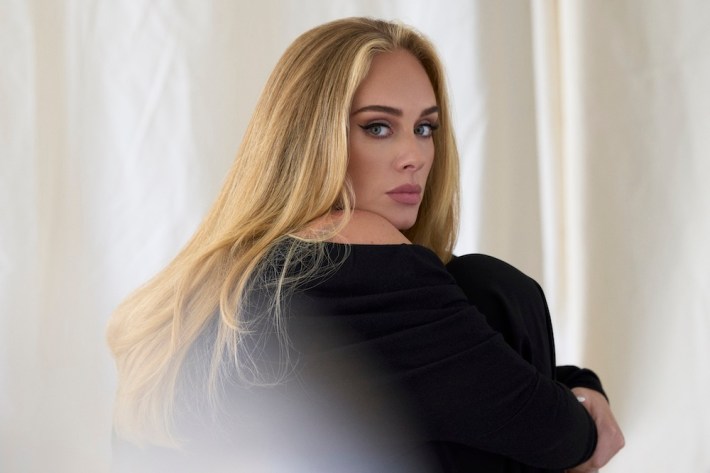
CHART WATCH
Hey everybody, Chris DeVille here. For logistical reasons I'm going to continue holding down the chart section of The Week In Pop every week. That begins with the news via Billboard that Adele's 30 is spending a sixth straight week at #1 on the Billboard 200. The LP totaled 99,000 equivalent album units, including 71,500 in sales -- crazy strong numbers for an album in its sixth week on the market. 30 is only the second album of 2021 to spend six weeks at #1 following Morgan Wallen's Dangerous: The Double Album.
Michael Bublé's Christmas remains at #2 followed by Taylor Swift at #3, Olivia Rodrigo at #4, and Wallen at #5. Nat King Cole's The Christmas Song returns to its #6 peak. Leaping all the way from #110 to a new high of #7 is the Lin-Manuel Miranda-penned soundtrack to the Disney cartoon Encanto with 41,000 units. It's the first soundtrack to crack the top 10 since Frozen II in 2019, and its big jump was likely fueled by the film's appearance on Disney+ on Christmas Eve. The usual holiday suspects from Vince Guaraldi (#8) and Mariah Carey (#9) are up next, and 1963's A Christmas Gift For You From Phil Spector -- which includes the Ronettes' "Sleigh Ride" and Darlene Love's "Christmas (Baby Please Come Home)" -- reaches a new peak of #10 with 39,000 units.
The Billboard charts are updating a day later this week due to the New Year's Day holiday, so we'll update this section Tuesday when the latest Hot 100 breaks. OK, back to Rachel!
POP FIVE
Alesso & Katy Perry - "When I'm Gone"
Katy Perry tends to be at her best when she does bubblegum pop and/or dance music, and here she's well served by Alesso's pulsating club banger. If "When I'm Gone" is an attempt to renew interest in Perry as she sails off into a Vegas residency, I think it's met that goal.
Aaliyah & The Weeknd - "Poison"
It's a bold move, collaborating with a deceased singer, especially one as universally beloved as Aaliyah. But the Weeknd proves up to the task on this brief, silky single, even if it does sound a bit unfinished.
Halsey - "Could Have Been Me" (The Struts Cover)
The opening handclaps are a little migraine-inducing if you haven't had your morning coffee yet, but Halsey's pop-punky submission to the Sing 2 soundtrack sounds like actual fun for the whole family.
24kGoldn - "More Than Friends"
Remember when a roomful of celebrities joined hands and sang "Just A Friend" at the Emmys? Yeah. I forgot about that too. Anyway, 24kGoldn's jaunty tribute to the late Biz Markie is way more effortless / not at all "Imagine"-level cringe.
Jhay Cortez - "Enterrauw"
"You say to respect women, but you support that abuser Chris Brown," reggaeton star Jhay Cortez snipes in Spanish on his eight-minute diss track directed at Rauw Alejandro. 10/10 diss, no notes.
https://youtube.com/watch?v=_6aVKoTQfII
NEWS IN BRIEF
- Jack Harlow announced a partnership with KFC to benefit Kentucky tornado victims. [Instagram]
- "I think porn is a disgrace," Billie Eilish told Howard Stern. "I used to watch a lot of porn, to be honest. I started watching porn when I was like 11." [TMZ]
- In a Clubhouse interview Morgan Wallen said he’d like to work with Moneybagg Yo and Kendrick Lamar. [Variety]
- Shakira will host a new NBC dance competition titled Dancing With Myself. [Deadline]
- Machine Gun Kelly's new movie has cast Megan Fox as his girlfriend. [Deadline]
- Billie Eilish made a brief cameo in Finneas' video for "Only A Lifetime." [YouTube]
- Here's Ariana Grande fake audition to be in her The Voice co-star Blake Shelton's latest music video. [Instagram]
- Avril Lavigne says her new album is inspired by Green Day and NOFX. [EW]
- Megan Thee Stallion signed a deal to develop content for Netflix. [UPI]
- Warner Music Group acquired 300 Entertainment, the label home to Megan Thee Stallion, Young Thug, and others. [Reuters]
- SZA teased her upcoming acting debut. [HotNewHipHop]
- Lorde released a video for "Leader Of A New Regime." [YouTube]
- The Weeknd released a video for "Echoes Of Silence" for its 10th anniversary. [YouTube]
- Post Malone announced a partnership with Magic: The Gathering. [Magic Wizards]
- TOMORROW X TOGETHER released a surprise Christmas song, "Sweet Dreams." [YouTube]
- Halle Bailey of Chloe X Halle shared a cover of Radiohead's "Creep." [Twitter]
- Ed Sheeran sings in Yorùbá on a remix of Fireboy DML’s "Peru." [PM News Nigeria]
- In a new filing, Taylor Swift requested a judge reconsider allowing the "Shake It Off" copyright lawsuit to go forward. [Rolling Stone]
- Drake drove around Toronto on Christmas handing out stacks of cash. [Twitter]
- BLACKPINK’s Rosé shared an acoustic cover of Cautious Clay’s "Wildfire." [Instagram]
- The Simpsons co-star in Bad Bunny's "TE DESEO LO MEJOR" video. [YouTube]
- Charli XCX teased a bit of her upcoming Rina Sawayama collab. [TikTok]
- Timbaland posted footage of himself in the studio with Justin Timberlake. [Billboard]
- Chance The Rapper sang a country take on Nelly's "Hot In Herre" on Jimmy Fallon's That's My Jam. [YouTube]
